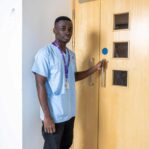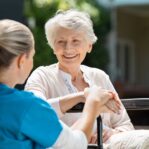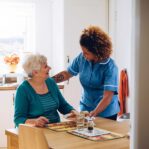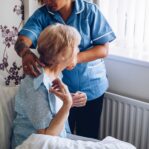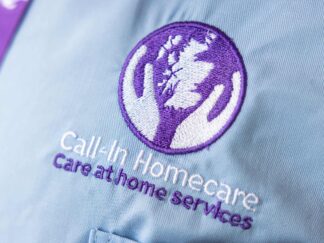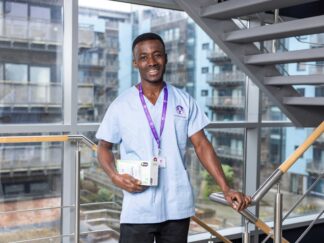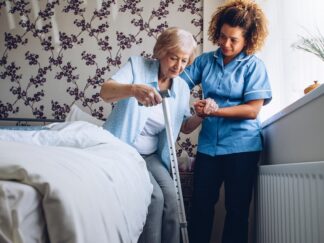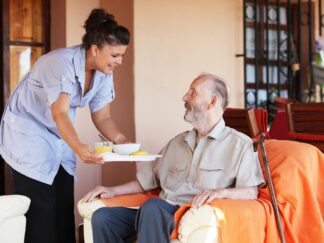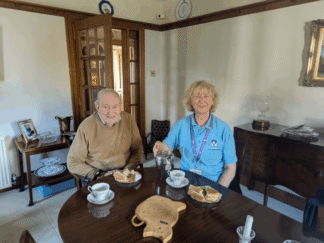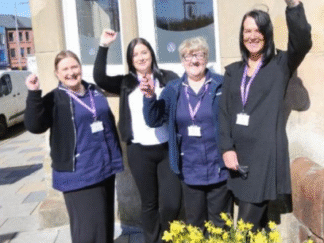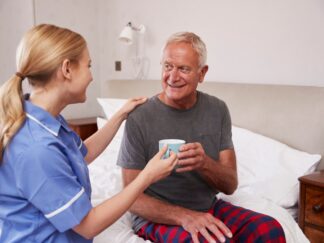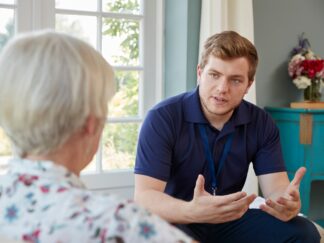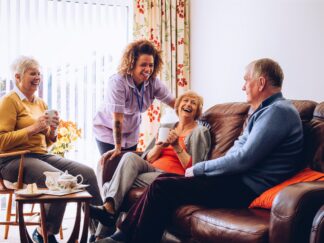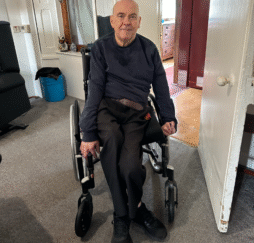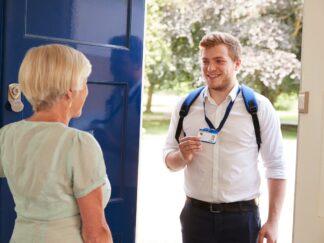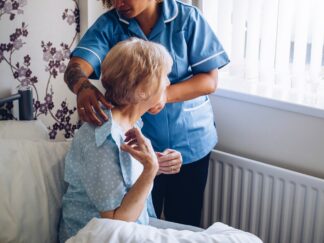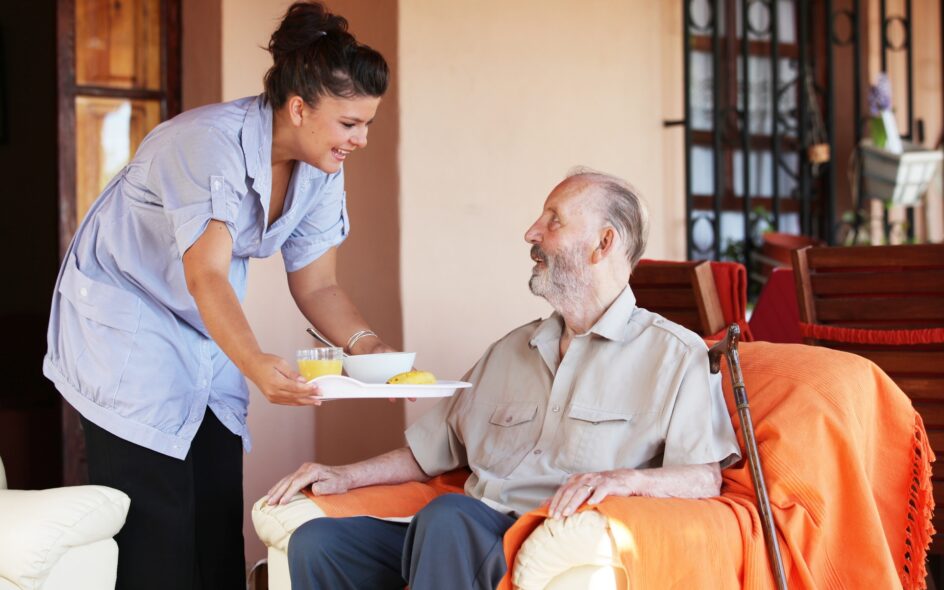
Advice on helping ageing relatives stay safe at home
Home safety becomes more important as we age. There are different aspects to safety to consider; personal risks and home security. If you are living at a distance from your relative then there are things on this list that you could still be able to can arrange from a distance. Others, you may wish to ask someone to do for you, or spend some time over the phone with your relative to go through them.
Fire Safety
Fire safety for ageing relatives is one of the first major considerations. In 2015, 41 per cent of all fatalities in fires in England were people over 65 years. 35 percent of fire fatalities was due to not having a smoke alarm.
Common causes of fire are electrical (mainly from cooking appliances), or smokers who have dropped a cigarette, or fallen asleep with one.
Ensure that your ageing relative has a smoke alarm installed in their home in the right places, and that the batteries are regularly replaced. If you are living at a distance from your relative then you can contact the local fire brigade who will be able to complete a Safe and Well visit. The visit will:
- Identify and be aware of the potential fire risks within the home
- Know what to do in order to reduce or prevent these risks
- Put together an escape plan in case a fire does break out and ensure there are working smoke alarms.
This visit is completely free of charge and your relative may also qualify for free smoke alarms and fitting.
Gas Safety
Carbon monoxide poisoning or leaving the gas cooker on, are both concerns when thinking of elderly relatives.
Carbon monoxide is a poisonous gas produced by the incomplete burning of carbon-based fuels, including gas, oil, wood and coal. You can’t see it, taste it or smell it but it can kill quickly with little warning. When carbon monoxide enters the body, it prevents the blood from bringing oxygen to cells, tissues, the brain and organs. Around 50 people die every year from carbon monoxide poisoning.
Any gas appliances; cookers, boilers, heating appliances must be regularly checked by a Gas Safe Registered Engineer.
A carbon monoxide detector can literally save the life of your ageing relative, so if they have any gas fuelled items in their home, ensure they get regularly tested, and that they have a detector.
What if your elderly relative leaves a gas hob on? You can purchase small gas alarms that can be placed near the cooker. The alarm will trigger once it senses a gas density in the air.
Falling or tripping
Every year, more than 70,000 people over 65 are admitted to accident and emergency following a fall. It’s important that the home is risk assessed for this. If you are due to visit your relative, you can go through this with them, identifying any risks. Or you can air your concerns for safety over the phone, however be careful about the way you do this. Otherwise, this activity does form part of a home care assessment.
Medically, there are things you can check that may prevent a fall, like ensuring they attend regular optician appointments. Improving core strength will help reduce the risks, this will involve exercise such as Yoga or Pilates, or even some aqua-aerobics can help.
Common causes of falls can be rugs, wires, poor lighting, stairs, using the bathroom, it’s worth looking into home adaptations for the elderly to help further if getting around in the home is becoming an issue.
Answering the door safely
Older people in general, tend to be much more trusting and compliant when answering the door. It’s a wise move to ensure they have a chain on the door so that they are able to partially open the door to talk but not risk having someone barge in.
Always ask for ID, and if it is someone they are not expecting, they should ask for the visitors name then look up the phone number of the company themselves and call to check. The visitor, if genuine will have the understanding and patience for this to happen. Do not use a number provided by the visitor as this can be a set up number.
Whenever answering the door, check that any back doors are locked in case of a distraction burglary.
Keeping the home secure
Security in the home can often be a concern for elderly people. They may just need reminding in the summer to close downstairs windows. If they are concerned about people approaching the home, then a gravel drive can help, as well as a sensor light that is triggered on movement in close proximity. These lights have the added benefit of seeing who is at the door if someone calls in the winter and it is dark.
If your ageing relative has any memory difficulties, then it can be wise for them to have a night time and going out security check list to ensure they have closed windows, and locked doors.
A final note…
It’s worth noting here that the right approach should be taken when advising and helping an ageing relative. Although you are doing it because you want them to be safe, the right approach is essential.
Let them know first that you would like to help them stay safe in their home and that there are a couple of things that would help them, as well as helping to put your mind at ease. Most people will be fairly accommodating to that. Ensure that you explain the things that need to change so that they understand and agree that it’s the right thing.
Our partners




























